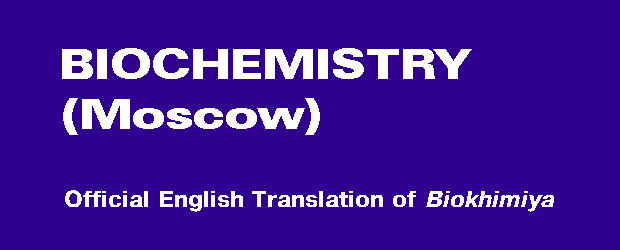
Editorial
Dear readers,
This issue of our journal is devoted to contemporary knowledge on various aspects of biochemistry of cancer. It commemorates the 80th anniversary of the birth of Academician Garry Israelevich Abelev, a scientist of world renown, the founder of the domestic school of cancer immunochemistry, a brilliant researcher, and a great man.
The discovery by G. I. Abelev of the synthesis in tumors of the embryonal protein alpha-fetoprotein created a new direction in investigation of the antigen structure of tumors in cancer immunodiagnostics and opened a new view of the origin and nature of tumors.
Academician Abelev's works have made a principal contribution both in fundamental biology of tumor cells and in clinical oncology. Many graduates of the Biological Faculty of Lomonosov Moscow State University, where Abelev delivered lectures in immunochemistry for 40 years, are counted as his students.
Reviews presented in this issue were written by his followers, students, friends, and colleagues in Russia and abroad specializing in various field of contemporary oncology.
The authors and editorial board of the journal cordially greet Garry Israelevich with his anniversary and wish him health, happiness, and success in all his activities and many years of creative work for the sake of our science and for the joy of his colleagues, students, and friends!
The Editorial Board
Science is continuously and essentially evolving along urgent lines. We have seen the termination of animal and plant morphologies and of such descriptive sciences as zoology, botany, and ecology. A spectrum of physiological and biochemical sciences have arisen in their place. Such problems of fundamental biochemistry as synthesis, structure, and functions of protein molecules appeared within recollection of our generation and have been solved within a few decades. This seemed to be unbelievable. The evolution of science is similarly brilliant in fundamental immunology. The nature of antibodies, their active sites, interactions with antigens, and also of T-cellular receptors is now known up to tiniest details and mechanisms of their production. A cardinal principle for immunology of clonal selection has been discovered. Some problems of autoimmunity and induction of tolerance are still unclear. Deep problems of fundamental immunology are solved, but difficult problems of applied immunology, including that of AIDS, still remain. The problem of cancer is the next task to be solved in the evolution of biomedical sciences. We have seen striking progress in this field. Oncogenes, protooncogenes, mechanisms of formation of carcinogenic viruses and of viral and cellular carcinogenesis, tumor suppressor genes, and epidemiology of cancer have shown intrinsic connections of different sides of carcinogenesis. Outlines of a general theory of carcinogenesis have arisen. The golden age of experimental oncology has come, and it is already giving its first yields into practical oncology: Glivec, the therapy based on inhibition of microcirculation development, immunological markers of cancer of liver and large intestine and of prostate adenoma, y-interferon are only the first but efficient steps in this line. But the golden age will terminate and, possibly, rather soon. Do not miss it! Do not wait for favorable conditions! The time is yours, and it is in your hands. This issue of the journal will be of help in your choice.
G. I. Abelev